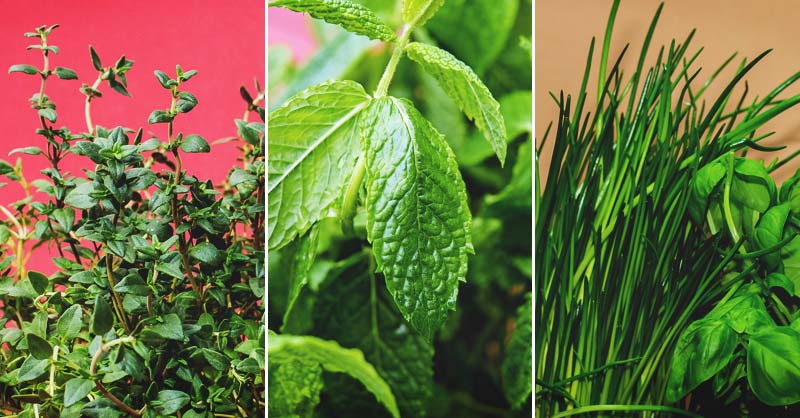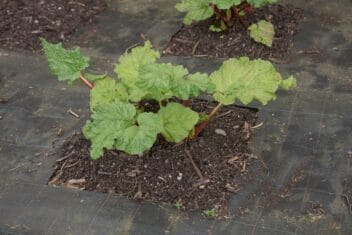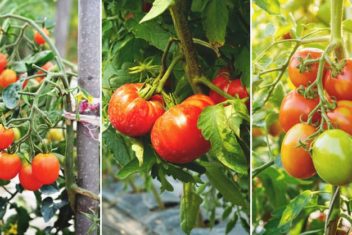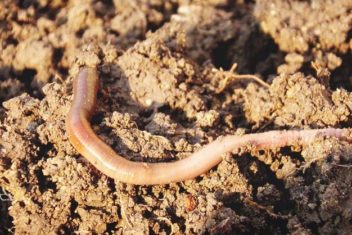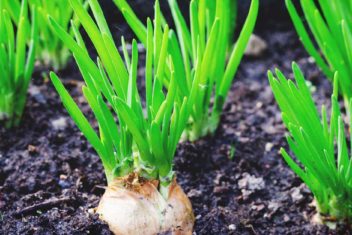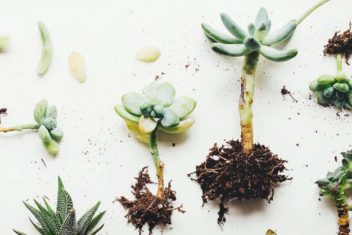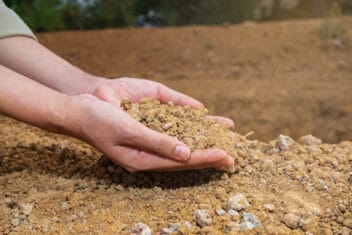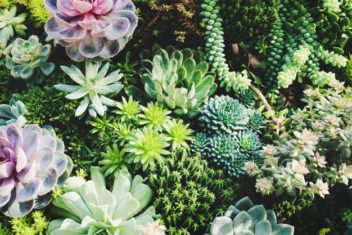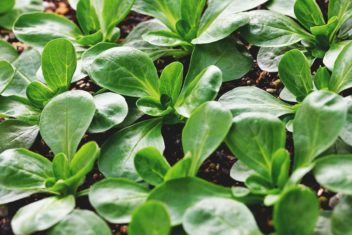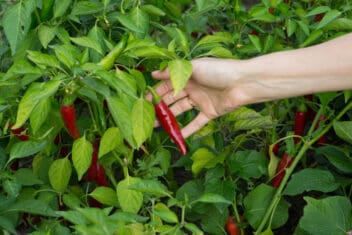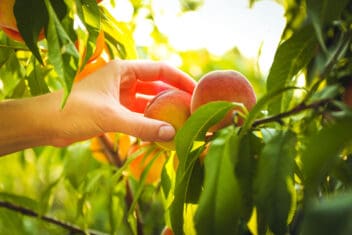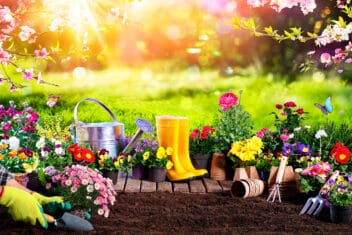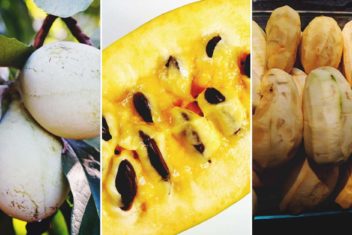Are you looking to fill your herb garden with perennials? I don’t blame you because you plant them once, and they should last approximately ten years.
But which herbs should you choose? It can get complicated when shopping for herbs. There are many different options.
Also, some herbs are only perennials in certain climates. I’m going to inform you of some of the best perennial herbs for your garden. There are some which are only perennial in some planting zones.
But no worries, I’ll give you a few pointers on how to make it work for your zone too. Here are the perennial herbs you should plant in your garden:
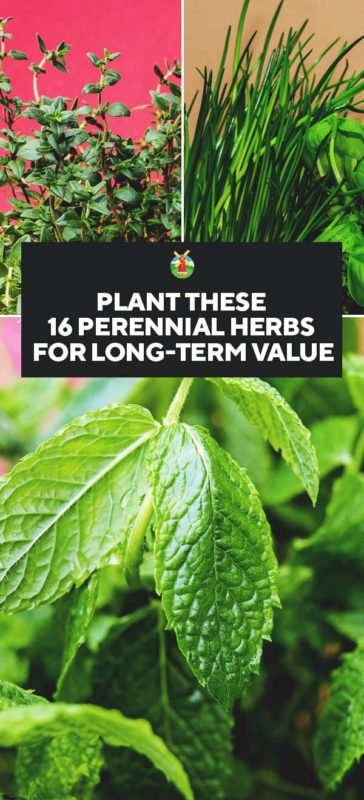
1. Lavender

Do you have an area of your yard which needs a splash of color? Lavender is exactly what you need. They produce gorgeous purple flowers which are beautiful in any garden.
They’re also excellent to use in flower arrangements. You can create both fresh and dried bouquets with this beautiful herb. I used to grow lavender right outside of my front door in a flower bed. It made our home pop and looked very welcoming year after year.
2. Mint

Be careful when planting mint. It’s known for taking over the space where it’s planted. For this reason, it might be better to grow mint in a container.
If you’re dead set on having mint planted in a specific garden space, try putting the mint in a bucket. From there, bury the bucket in the ground. This won’t guarantee the mint won’t sprawl, but it should deter it some.
An alternative is to use the excess mint as fodder or for compost and to encourage their abundant growth.
3. Catnip

Catnip is exceptionally addictive to cats. I have a cat which will breathe in catnip extremely hard to the point you wonder if she’s going to fall over. She loves the smell so much! It’s humorous, but I don’t plant catnip openly in my yard because I know it’ll draw stray cats.
But if you love catnip and are okay with neighborly cats, it makes a wonderful tea. Catnip tea also has many excellent benefits. Whether you plant the herb for your cats, the entertainment of watching cats around catnip, or you love the tea, I doubt you’ll be disappointed.
4. Wintergreen
Wintergreen is another form of mint, but it deserves to be mentioned on its own because of all it brings to the table. This herb will make a fantastic ground cover.
The plant will produce gorgeous lilies during the spring and edible berries during the fall. Plus, the leaves are excellent for making tea. If you’re looking for a useful and visually appealing ground cover, this could be it.
5. Echinacea

You may have heard of this herb by its other name, purple coneflower. It’s a wonderful perennial herb because it will grow in practically any garden. They aren’t particular about soil requirements either.
Meaning, if you have a dry area with poor soil, this herb may grow there with no trouble. You can spread the flowers around by allowing them to dry out. When the cones have dried, sprinkle the seeds where you’d like them to grow, and you’ll have gorgeous purple coneflowers the next season.
6. Verbena

Verbena is an herb which is only a perennial in certain zones. If you live in planting zone 8 and above, this plant will survive outdoors over the winter months.
However, if you live in a colder climate, you can bring the herb indoors to overwinter. If you don’t, you’ll have to plant it as an annual.
7. Chives

Chives are probably my favorite herb in our herb garden. They’re a gorgeous perennial herb which is tasty too. They also are easy to grow and come back more impressive every year.
Something to keep in consideration, when the chives come back each year, they get larger. Be sure to include this when you are planning the spacing for your plants.
8. Oregano

Oregano is another delicious herb. It smells lovely and is useful in the kitchen too. If you live in a cooler climate, you can’t plant the herb and walk away expecting it to return each year.
You’ll need to cut oregano back during the fall. It should be covered with mulch as well to protect it from the elements. Oregano won’t grow and produce year-round, but with proper care, it should return each spring.
9. Winter Savory
This perennial herb is known for producing a strong pepper flavor. If you want a herb to include in your warm or cold dishes which will add a little kick, this could be what you’ve wanted.
Winter savory is an extremely hardy herb and is great for using to infuse vinegar, to make herb butter with, or to make a delightful tea. Growing it from seed is difficult. For this reason, you’ll need to propagate the plant every three years.
10. Lemon Balm

We grow lemon balm in our herb garden because our bees love it. It’s also an excellent herb to grow because it’s useful in the kitchen and contains medicinal properties.
Lemon balm has a pleasant fragrance and is gorgeous in appearance. It is a great candidate with which to garnish your meals. Because of how flavorful it is, it’s a great choice to use in beverages as well. If you’re looking for a perennial herb to give you plenty of bang for your buck, this could be the one.
11. Curry
I’ll go ahead and let you down. You can’t grow curry in your herb garden. The scent you get from curry comes from a variety of spices and herbs.
However, you can grow this perennial (though non-edible) plant to produce the scent of curry in your herb garden. It will add a unique look and make your herb garden smell delicious.
12. Thyme

If you haven’t cooked with thyme, I’ll warn you. It’s a potent herb. A small amount of it goes a long way when cooking. But it is very aromatic and smells lovely in your garden and is delicious (in the right amounts) in your cooking.
This herb is easy to propagate to make new plants. It also grows well in most climates. Thyme does prefer to grow in full sun, though. Be sure to prune the thyme every spring to encourage the plant to produce for the new growing season.
13. Tarragon

Tarragon is a herb which is very difficult to grow from seed. When you purchase a tarragon plant, you can create more by propagating from the plant you bought. You can also grow tarragon indoors year-round. Having indoor herbs is great if you like to cook with it.
However, keep in mind, French tarragon is the only tarragon which is suitable for cooking. There are other varieties which are great for ornamental use. French tarragon is also great for infusing oils and vinegar, using on white meat dishes, and including in your vegetable recipes.
14. Chamomile

Chamomile has a very subtle scent. It isn’t overpowering, which I like about it. It’s great to make chamomile tea with and can also be used to make your home smell fresh in a natural way.
However, if you have a place in your yard where you need ground cover, this could be a functional way to do this. Chamomile is a creeping ground cover which produces an edible for you to use as well.
15. Sage

Sage is another herb we grow in our herb garden, and I love it. We raise our pork and make a great deal of sausage. Sage is lovely to be used in sausage, and we also use it in stuffing around Thanksgiving.
What makes sage great is its hardiness. It grows well in most climates and survives the overwintering process in most areas too. The secret is to prune sage way back in the fall and pad it with mulch. When it’s insulated, it should do fine over the winter months and return each spring.
16. Rosemary

Rosemary is another herb we grow and love in our herb garden. It overwinters well in zones 8-10, officially. We live in zone 7 and have had decent luck with most of our rosemary surviving typical winters. We lost some this past winter because of the unusual cold snap we had late in the season.
However, if you’re concerned about the rosemary surviving winter in your location, you can plant it in a container and bring it indoors for the winter months. You can dry or freeze rosemary to use over the winter, and it’s delicious when used to season both meat and bread.
Well, you now have 16 different perennial herbs to choose from to fill your herb garden. Some may have to be added to the herb garden in containers to keep them alive over the winter depending upon where you live.
But you should be able to produce plenty of delicious herbs year after year. They all have unique uses and purposes. Which makes them all excellent candidates for your garden. We hope you enjoy them as much as we do!

